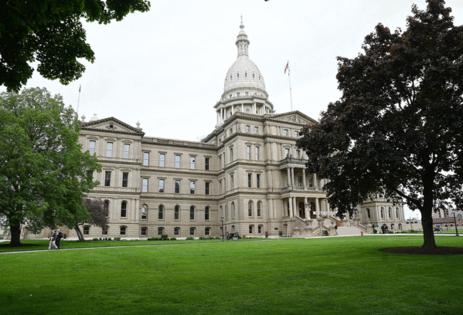Bills subjecting Michigan governor, lawmakers to public records law inch forward in House
Published in News & Features
LANSING, Mich. — A Michigan House panel on Wednesday voted 5-0 to advance legislation that would subject the Legislature and the governor's office to the Freedom of Information Act, a change that's been sought for more than a decade in Michigan.
The hearing before the House Government Operations Committee marks the first time in 10 years that the public records laws specific to the governor and Legislature have made it to a second chamber in the Legislature. In past years, under Republican control, the bills have been able to pass the House but have been denied hearings in the Senate. This year, the Senate voted in June to send the legislation to the House.
Michigan is one of two states in the nation that exempt their Legislature and governor from public records requests under the Freedom of Information Act.
"The sad reality is all of the scandals that have happened in this town have probably even made a better case for producing this policy," said state Sen. Jeremy Moss, the Southfield Democrat who helped introduce the legislation.
"Some of these scandals that came out of the Legislature happened in the dark because they could happen in the dark."
The legislation, if passed through the House and signed by Democratic Gov. Gretchen Whitmer, would go into effect on Jan. 1, 2027. They are Senate Bills 669 and 670.
Moss and co-sponsor state Sen. Ed McBroom, R-Vulcan, said they're "cautiously optimistic" that the legislation will move through the full House before the end of the year.
"In an era where it feels like trust with the public is stretched thin many times with public officials, we hope that this is a way to, one, demonstrate some good faith on our part and, two, help them to have some sunshine," McBroom said.
The legislation is largely supported by an unlikely coalition that includes the progressive American Civil Liberties Union of Michigan, the fiscally conservative think tank Mackinac Center for Public Policy and the Michigan Press Association.
The legislation largely would require lawmakers to provide copies of their calendars and communications when requested through a public records request. A legislative FOIA office would be set up to handle the FOIA requests, in much the same way as a FOIA coordinator in a local municipality.
There are some broad exemptions in the law that exempt a lawmaker's communication with constituents, budget recommendations, decisions related to a pardon or commutation, phone numbers, internal investigations, opinions or advice about public policy and information that could threaten the security of the governor or lawmakers.
Communications with lobbyists would be subject to public disclosure and not fall under the exemption for communications with constituents.
_____
(Detroit News staff writer Craig Mauger contributed to this story.)
_____
©2024 www.detroitnews.com. Visit at detroitnews.com. Distributed by Tribune Content Agency, LLC.







Comments